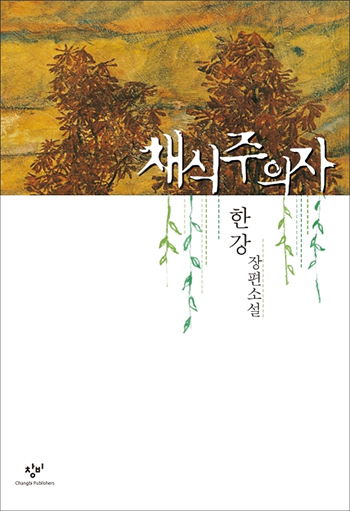The Rise of Literary Agencies
There are not many literary agencies in Korea. Most of the publishers prefer working directly with authors over cooperating with agencies. It was common for publishers to think that it is safer to pay more of an advance to overseas writers who have already finished writing their manuscript or are expected to finish them soon rather than domestic writers who have not yet completed their manuscript.
The most significant characteristic of the Korean publishing industry would be “diversity.” The system in which up to 6 thousand small- and medium-sized publishers make more than 80 thousand physical titles each year has greatly diversified the types of books published in Korea, but the limited average sales of each title was an expected outcome. In such an environment, it is difficult to invest a sufficient amount of development fee for each title. Hence, even though the literary agent succeeded in discovering fine manuscripts or outstanding authors, it was hard to make profits up to the anticipated level as they could not expect high advances or good sales performance. The adaptation rights market was not facilitated several years ago. The market size was not big enough in Korea, and overseas publication rights export was not actively carried out either. It was impossible for the agencies to discover and manage authors and keep the copyright intermediary business running with only a small amount of commission fee. Hence, most of the literary agencies made a profit through commission by introducing exclusive rights of publication of foreign books to domestic publishers.

The Vegetarian
Ever since Lee Gu-Yong established KL Management in 2004 – a literary agency specialized in exporting Korean literary works – after working for a long time at a copyright agency, he has exported approximately 1,000 titles, supporting literary agencies to root down as one of the publishing fields that target domestic writers. In particular, as K-Pop went crazy across the world, Korean TV dramas and films were also brought to the center of attention, bringing Korean literature, the original source, into the limelight. In particular, after Han Kang’s The Vegetarian (Changbi) won the International Booker Prize and became a bestseller in Great Britain and the US in 2016, Korean literature began to be actively exported across the world. Responding to the new trend, major publishers in Korea expanded their business by turning their eyes to publication rights export and adaptation rights sales, placing personnel in charge of copyright management. So, it’s been about five years that the cultivation and management of authors has separated from publishers’ editing work to a certain extent and became an independent business.
Changes in the content industry have made publishers turn their eyes to business that connects authors and readers, and books and people.
Meanwhile, we also cannot neglect the changes that took place across the overall content business since the 2000s. Businesses in the hyper-connected society have all changed to connected businesses that are based on content. In short, customers are looking for stories, not products. The changes in the content industry are taking place more rapidly. As music albums, TV dramas, movies, and cartoons went “digital” one by one; they also became “free of charge” as well. Hence, as singers make profits with concerts, events, and advertisements rather than selling albums, businesses that use content to make money rather than sell it have begun to settle as a new business model. The publishing industry was slow in response but could not avoid the trend at all – they have also turned their eyes to businesses that connect authors and readers, and books and human beings.
Lecture businesses that utilize authors have begun to gain strength since 2008. New businesses such as Influential and MICIMPACT, which utilize bestseller authors and send them as professional lecturers to all kinds of places such as companies, local governments, and schools, have surfaced. Following this, the number of publishers that run promotions for authors while establishing academies that benchmark them for their own lecture businesses has increased rapidly since 2010. Minum Academy and Changbi Hakdang would be the best examples.
Entering 2010, a mobile revolution took place that gave birth to various content platforms such as web-comics, web-novels, podcasts, web-dramas, and Youtube. As the number of OTT (Over-the-Top) businesses grew after 2015, utilization of content has also diversified exponentially. In other words, it was the beginning of the OSMU (One-Source-Multi-Use) era where one content is used in multiple fields. Meanwhile, this has made sales and management of adaptation rights one of the major issues in the publishing industry, particularly in the fields of movies, TV dramas, and games.
The literary agent system in which the agencies take care of contracts and payments while authors only focus on works has rapidly settled in areas of web-novels and web-comics where payment methods are extremely complex depending on the platform. Also, scriptwriters of TV dramas and programs have moved to use the agency system where creating works and management are separated. Relevant discussions took place in the publishing industry sporadically, until Blossom Entertainment established Blossom Creative in 2014 and signed a contract with popular writers including Kim Young-Ha, Kim Yeon-Soo, Kim Joong-Hyuk, Pyeon Hye-Young, Bae Myung-Hoon, Kim Geum-Hee, and Kim Young-Tak, starting to manage their events such as appearances on TV shows or lectures, not to mention their adaptation rights. Publishers have rolled their sleeves up as well, with attempts to add businesses such as author managements to their copyright contracts. Also, conflicts surrounding the utilization scope of books are increasing in multiple publishing fields such as e-books and audiobooks.

Excluding a few big publishers, most of the publishers in Korea that carry out small-quantity batch production were not ready to respond to such a new business area. Editors temporarily taking charge of managing authors and their works when their books are published would only be a quick fix, unable to cover various additional works. This worsened complaints from authors that request professional management, and apart from their needs, there had to be a professional that will be on the authors’ side and take care of negotiations and contract issues related to adaptation rights, publication rights export, lectures, and appearances on TV shows that have recently become lucrative and more complex. In particular, as contents are being utilized in more diverse areas, contracts have become complicated and more conflicts related to copyrights have arisen. This has led to the desperate need for a service that provides legal advice and handles legal procedures. In other words, it was the perfect environment for literary agencies to prosper.
Kyobo Bookstore’s Story business kicked off in 2015 in order to actively respond to such environmental changes. It is working to discover new authors and works through story contests, utilizes existing authors and editors to provide a mentoring service, and publishes works by cooperating with publishers, and introduces works at events such as the Busan International Film Festival so that they draw the attention of TV drama and movie producers. In other words, it was an agency system that took care of the entire process, from discovering new authors to publishing books and making films and TV dramas. It is their aim to develop works where their adaptation rights can be utilized easily in areas such as the film industry, just like world-renowned agency ICM in the US.
Publishers’ author management and literary agencies’ author management are different. Publishers mainly pay attention to the front lists they publish, but literary agencies continuously take care of everything about the authors as the rise of their brand value leads to the agencies’ profits. And as they make profits through authors’ various activities on top of their works’ sales, they steadily pay attention to establishing networks with film and TV drama producers, actively promote the values of their publication rights, and making new lectures. Some agencies even think of selling adaptation rights for films and such when starting to develop works.
Literary agencies are in the perfect condition to prosper as contracts are becoming more complex, and more copyright conflicts are taking place with the increased utilization of content.
The emergence of literary agencies calls for a change in authors’ identities. Just like what professor Lee Yoong-Hee at Chungkang University said, “Authors no longer meet the public through books as a writer, but as a complex content creator.” There will be authors that are capable of creating content in various fields and those that are yet only used to written texts. It would be better for the former writers to be cared for by literary agencies while the latter should be managed by the existing publishers as they used to be.
Literary agencies indeed have an obvious limitation at the moment. It is related to securing stable profits, but most of the literary agencies today are merely focused on making use of existing bestseller writers, not investing much in discovering new authors or developing their own content like their overseas counterparts. From the viewpoint of the publishers, authors could be seen as cherry pickers that only take away the fruits after they put effort into developing content and raise their values through advertisements. This is why publishers are actively requesting proper profit distributions related to the sales of adaptation rights. It is necessary to remember that agencies are not only in charge of managing contracts but also of creative roles related to fostering authors and developing works in the fields of web-comics and web novels.
Written by Jang Eun-Soo (Head of Editing Culture Laboratory)













